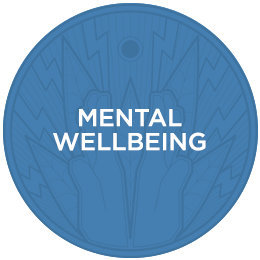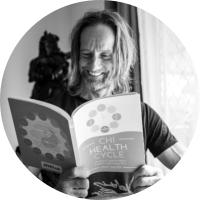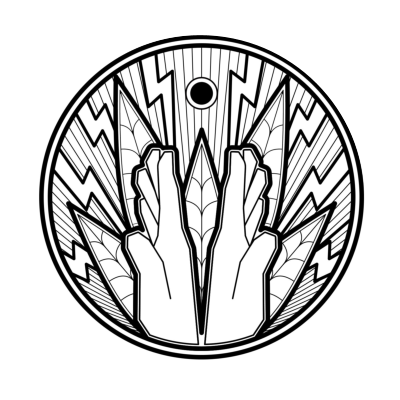Why weekly date nights and romance advice fail – and how to address the invisible patterns that actually determine relationship success or failure. The Surface Solution Trap “Can you reignite intimacy and passion with weekly dates?” This question came up in my clinic recently, and while scheduled romance…
Chinese medicineLifestyle MedicineMental Health Articles
Chinese medicine / The ADHD Explosion: Late-Onset Diagnosis and Leaning on Labels
Posted August 24, 2025

The ADHD Explosion: Late-Onset Diagnosis and Leaning on Labels
by Jost Sauer
A Revolutionary Perspective on Modern Mental Health Labels
Something unprecedented is happening in my clinic
ADHD diagnoses in adults have absolutely skyrocketed, particularly since 2020. What used to be one or two ADHD cases per week has exploded to multiple patients daily. After practicing Traditional Chinese Medicine for over 40 years, I’ve never seen anything like this.
The response to my recent posts about late-onset ADHD was extraordinary. Hundreds of people sharing their stories, debating the causes, questioning what’s really happening and feeling good about having a label to attach to their symptoms. This tells me it’s something significant that deserves deeper exploration.
So here’s some background on what I discovered about the ADHD explosion, based on my observations, within a TCM framework. It includes some interesting research on what’s really driving this surge.
Background ADHD history
Many people think late onset ADHD has been around forever, but here’s the timeline:
- 1798: First symptoms described by Scottish physician Sir Alexander Crichton
- 1968: ADHD first appeared in diagnostic manuals as “hyperkinetic reaction of childhood”
- 1987: The term “ADHD” was introduced
- 1994: First time medicine suggested that ADHD symptoms don’t always disappear in adulthood
- 2008: UK officially recognized ADHD in adults for the first time
Adult ADHD as a recognized medical condition is relatively recent. The idea that ADHD persists into adulthood has only been officially acknowledged for about 30 years.
Here are the numbers that should make us pause:
- Adult ADHD diagnoses increased 123% from 2007 to 2016
- By 2023, an estimated 15.5 million American adults had ADHD
- 1 in 4 U.S. adults now think they have the condition
- During COVID, stimulant prescriptions jumped 30% among people ages 20-39
But this is what really got my attention:
Recent comprehensive research revealed that approximately 95% of people who thought they had “late-onset ADHD” actually had something else when properly assessed.
The most common were symptoms from psychiatric conditions, or substance use or lifestyle factors.
Here’s something else most people don’t realize:
There is no medical test for ADHD. No blood test, brain scan or genetic marker. Adult ADHD is diagnosed purely through symptom questionnaires and clinical interviews. People basically tick boxes describing their experiences, and if you meet 5 out of 9 criteria, you get the diagnosis.
The long COVID connection that fascinated me
As I’ve been observing this ADHD explosion, I noticed something interesting: the symptoms people attribute to “late-onset ADHD” are nearly identical to those experienced by people who come to my clinic with long COVID. And both conditions predominantly emerged after 2020.
The ADHD and long covid symptom overlap is about 95%:
- Brain fog and difficulty thinking clearly
- Problems with concentration and focus
- Memory issues and forgetfulness
- Mental fatigue and cognitive exhaustion
- Sleep disturbances
- Anxiety and overwhelm
- Depression and mood changes
What I see in clinic
When I have patients with these symptoms – regardless of whether they’ve been labeled with ADHD, long COVID, there’s similar underlying patterns:
Heart Qi Disturbance
Scattered thinking, inability to focus, anxiety, emotional instability. In TCM, the Heart houses the mind, so disturbance here directly affects mental clarity.
Spleen Qi Deficiency
Brain fog, difficulty concentrating, mental fatigue, feeling unable to “grip” reality. The Spleen governs thinking and mental processing.
Kidney Essence Depletion
Memory problems, deep mental exhaustion, inability to sustain attention. The Kidneys support long-term mental stamina.
Shen Disturbance
Restlessness, sleep problems, emotional volatility, disconnection from sense of self. This represents disconnection from your spiritual center.
Here’s what’s really significant:
These patterns all point to the same underlying cause – the body’s response to unprecedented stress and upheaval.
The past five years have created conditions that take a toll on our organ systems: chronic uncertainty, social isolation, disrupted routines, information overload. Rather than seeing this as pathology, it’s often the body’s adaptive response to extraordinary circumstances.
The lifestyle connection I see every day
One pattern I consistently observe is the connection between “ADHD” symptoms and lifestyle factors. The Spleen system is particularly sensitive to:
- Irregular eating patterns
- Overthinking and worry
- Sedentary lifestyle
- Poor sleep patterns
- Excessive screen time
When I address these lifestyle factors with patients, their “ADHD” symptoms often improve dramatically without medication.
The problem with labels
While medical labels can provide relief and validation, there’s a potential downside. When we identify strongly with “I have ADHD,” we may unconsciously reinforce limiting beliefs:
- “There’s something fundamentally wrong with me”
- “I need medication to function normally”
- “My symptoms are permanent”
I see symptoms as information – your body’s way of communicating imbalance. Rather than suppressing symptoms, they are guides to restore harmony.
A different approach: Supporting natural balance
Since many “ADHD” symptoms relate to Spleen Qi deficiency, here are foundational practices I recommend:
Dietary Support:
- Eat warm, cooked meals at regular times
- Avoid cold, raw foods that require extra energy to digest
- Include gentle spices like ginger and cinnamon
Lifestyle Rhythm:
- Establish consistent daily routines
- Get morning sunlight exposure
- Create regular sleep and wake times
Mental Hygiene:
- Practice single-tasking instead of multitasking
- Set boundaries around information consumption
- Spend time in nature regularly
The bigger picture
What we’re witnessing isn’t just individual health issues – it’s a collective response to unprecedented global upheaval. The symptoms people are experiencing may be their body’s way of saying “this pace and way of living is unsustainable.”
Rather than pathologizing the response, use it as an opportunity for healing. Address the root causes – stress, disconnection, lifestyle imbalances – this creates possibility for transformation.
Your body knows how to heal
This perspective doesn’t diminish what people are experiencing. Cognitive difficulties and attention challenges significantly impact quality of life. The question is: how do we most effectively address them?
Lasting healing comes from understanding root patterns, supporting the body’s natural capacity for balance, and addressing lifestyle factors that contribute to dysfunction.
For those finding relief through ADHD medication, this isn’t about stopping what’s working. It’s about considering whether additional approaches might provide deeper, more sustainable healing.
The path forward
Your body knows how to focus, feel calm, and think clearly. Sometimes it just needs the right support to remember how.
The path forward isn’t about managing a condition – it’s about rediscovering your natural state of balance and vitality.
Check out ADHD Rehab for lifestyle treatment!
Share this article:
About Jost Sauer
Jost Sauer is an expert in preventative health and Chinese medicine.
Jost pioneered lifestyle medicine for addiction, kickstarted a recovery revolution with his groundbreaking rehab program, and then adapted the program for everyone as the Chi Cycle lifestyle; a health-boosting, fat-burning feel-good day plan.
Jost has treated thousands of people including celebrities, CEOs and athletes, using his unique combination of Chinese medicine, acupuncture, chi-activation, motivational coaching and lifestyle. He offers individual sessions, training programs and retreats. Jost’s passion is to show everyone how to optimise their organ function, synch back in and reconnect to natural rhythms, and make every day medicinal and magical…
Related Articles
Forget everything you’ve been told about healing from relationship breakups. This groundbreaking method transforms heartbreak into an opportunity for authentic self-discovery and spiritual awakening. Why Traditional Heartbreak Advice Fails Most relationship recovery advice follows the same tired formula: take time to grieve, don’t rebound too quickly, work on yourself,…
Feeling overwhelmed by anger everywhere you look? You’re not alone. Here’s how to use anger as fuel for positive change instead of letting it destroy your health and relationships. The Anger Epidemic: What’s Happening to Us? There’s no denying it – anger is everywhere right now. I see it…





